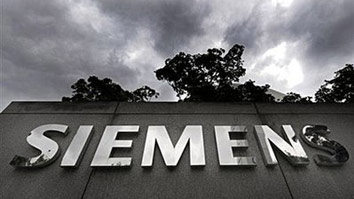
The Rise and Fallout of Rio Tinto
Many experts say that bribes are not necessary to do business and that too many foreign companies mistakenly assume it’s necessary. “There is this thing that some foreign companies are still convinced that this is the way business is done in China,” says Bruce McLaughlin of Sinogie, a firm which advises western companies on how to do business in China, “and that goes from the smallest foreign companies to the largest."
Some foreign companies, feeling handicapped by a lack of “guanxi” – the personal connections which are instrumental in getting business done in China – resort to bribes to improve their chances of winning contracts and receiving favorable responses from local governments. According to Cheng Baoku, a law professor studying commercial bribery at Tianjin’s Nankai University, “It is easier for overseas firms to rake in huge profits in China if they bend themselves to those underlying rules.”
Still, as the cases below, and that of Rio Tinto demonstrates, international corporations that step outside the law in China may face financial and legal consequences. The good news for foreign companies is that the landscape in China is changing. Michael Ahrens, head of the watchdog group Transparency International Australia, says China is improving but still has a long way to go. Speaking pragmatically now,” Ahrens says, “it is possible to do business in China without paying bribes and some very large companies are doing that."
International companies have long been known for their innovative ways of doing business, and for their infusion of economic power and strength into the once stagnant Chinese markets; all in all, it had seemed like international brands really helped China break into the forefront of global trade. However, business scandals involving international companies and their use of bribery to ease their way in China has really brought these international companies into a new perspective, one that is anything but glamorous.
Business Scandals Involving International Enterprises
In the last few years, big foreign names such as McKinsey & Company, Alcatel-Lucent, Morgan Stanley and IBM all have been involved in business bribery scandals which shed new light on international companies in China and the way they handle business locally.
Wal-Mart Case
In December 2003, Kunming Wal-Mart Management and Services Co. Ltd were applying for an affiliated project license. To smooth the way, they provided then party secretary, and head of the Yunnan foreign trade and economic cooperation office Peng Mu Yu, and his wife, with a Hong Kong shopping spree – complete with 100,000 RMB in cash for spending money. When the bribery came to the surface, the party secretary was sentenced to 10 years in jail.
Alcatel-Lucent Case
It was revealed in April 2004, that Alcatel-Lucent, the global telecommunications company headquartered in France, had, over a span of 3 years, provided resort vacations in the United States for nearly a thousand Chinese officials and senior managers. Under the guise of, “visiting overseas factories and skills training,” officials spent time living it up in Hawaii, Las Vegas, the Grand Canyons and Disney World. These “official trips” cost Lucent over 10 million USD.
When the situation came to light, Alcatel-Lucent was fined 2.5 million USD by the US Justice Department and Securities Exchange Commission.
Diagnostic Products Corporation (DPC) Case
In May 2005, the US Justice Department revealed that the world's largest manufacturer of medical diagnostic equipment had paid a total of 1.62 million USD in bribes to state-owned and employed doctors in China, in exchange for their continued prescribing and support of DPC pharmaceutical products. DPC made a profit of 2 million USD from these “under-the-table” contracts. When the scandal was exposed, the company was fined 4.78 million USD by US authorities under business bribery charges.
IBM Case
In a ruling that showed how deep the bribery reached, in November 2006, Beijing's First Intermediate People's Court found IBM senior management guilty of being in close contact with China Development Bank head Zhang Enzhao, which is in direct breach of Chinese laws and regulations governing overseas finance. The court also found that IBM had wired 225,000 USD under the guise of “service charges” to an intermediary's account, which was then routed to Zhang Enzhao.
Carrefour Case
Even before the run-up to the Olympics the French supermarket giant was having difficulties in China. In August 2007, Carrefour China announced that eight of its managerial employees in Beijing had been detained under charges of receiving bribery and graft from suppliers. The bribes amounted to over a million yuan.

Siemens Case
Last year, German telecommunications giant Siemens agreed to pay 1.3 billion USD in settlement for a business bribery case that had been ongoing for more than two years. The huge settlement and over two years of litigations were triggered by the emergence of a scandal involving Siemens and Chinese hospitals. From 2003 to 2007, Siemens bribed five different state-owned hospitals in China, to the tune of 23.40 million USD. With the same “under-the-table” contracts, Siemens also managed to bribe Chinese officials into procuring for them lucrative contracts for railway construction (worth 1 billion USD) and two electric power line projects in southern China (838 million USD).
Morgan Stanley Case
In February 2009, Morgan Stanley was reported to the U.S. Securities and Exchange Commission concerning charges surrounding a real estate employee in China being involved in “overseas corruptive actions as against related business regulations.” Two such real estate managerial employees in China soon petitioned for leave from their positions. So far, investigations are still underway about the specific bribery charges and details.
It's really a bit shocking that we should find so many familiar international brands on the list of those found guilty of commercial bribery while doing business in China. According to a survey by Beijing-based information consultancy firm Anbound, there are a worrying number of foreign companies being exposed for dealing in graft while doing business in China. Of the 500,000 cases of business bribery in the last 10 years in China, 64% of them are related to international trade and foreign companies.
Read the original in Chinese here
***
Related Links
The Rise and Fallout of Rio Tinto
Staying Compliant in China under the FCPA
China deals with 7450 industrial, commercial bribery cases in 2007
Warning:The use of any news and articles published on eChinacities.com without written permission from eChinacities.com constitutes copyright infringement, and legal action can be taken.
All comments are subject to moderation by eChinacities.com staff. Because we wish to encourage healthy and productive dialogue we ask that all comments remain polite, free of profanity or name calling, and relevant to the original post and subsequent discussion. Comments will not be deleted because of the viewpoints they express, only if the mode of expression itself is inappropriate.
Please login to add a comment. Click here to login immediately.